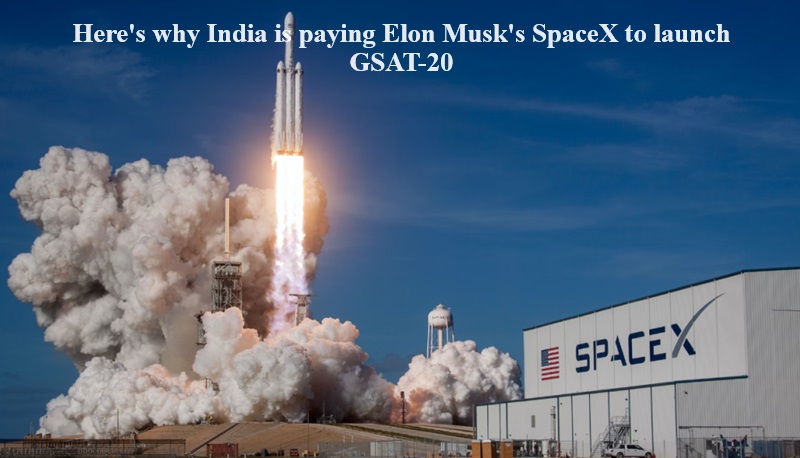
Over the past 25 years, the Indian Space Research Organisation (ISRO) has successfully launched over 430 satellites for foreign customers, demonstrating the capabilities of its launch vehicles, particularly the PSLV and LVM3. Despite this success, the Indian Government recently signed a contract with American company SpaceX to launch its own satellite, GSAT-20. This decision raises questions about why ISRO didn’t handle the launch internally.
GSAT-20, a 4.7-ton communication satellite built by ISRO, aims to provide high-capacity broadband services, including In-flight and Maritime Connectivity (IFMC) services. It operates in the Ka-band spectrum and will be positioned approximately 36,000 km above the Earth, covering the entire Indian mainland, as well as the Andaman & Nicobar and Lakshadweep archipelagos.
The NewSpace India Limited (NSIL), ISRO’s commercial arm, announced the launch contract with SpaceX for GSAT-20. While smaller satellites from Indian private firms and startups have been launched by SpaceX’s Falcon 9, it’s the first time an Indian Government satellite will fly on Elon Musk’s rocket.
The NSIL emphasized that GSAT-20, also known as GSAT-N2, is a high-throughput satellite with 48 Gbps capacity, the majority of which has been secured by Indian service providers. However, the names of these service providers were not disclosed.
ISRO’s rockets, including SSLV, PSLV, GSLV, and LVM3, have varying payload capacities for different orbits. While ISRO’s GSLV and LVM3 are designed for payloads into highly elliptical orbits like Geosynchronous Transfer Orbit (GTO), GSAT-20 will be launched into such an orbit. The decision to choose SpaceX’s Falcon 9 for this launch raises curiosity, as ISRO has proven capabilities in placing communication satellites into GTO.
GSAT-20 is fully owned, operated, and funded by NSIL, and the launch is expected to take place in the second quarter of 2024. The contract with SpaceX indicates a strategic choice by the Indian Government for this specific mission, possibly influenced by factors such as schedule constraints or specific technical requirements.

Post Your Comments